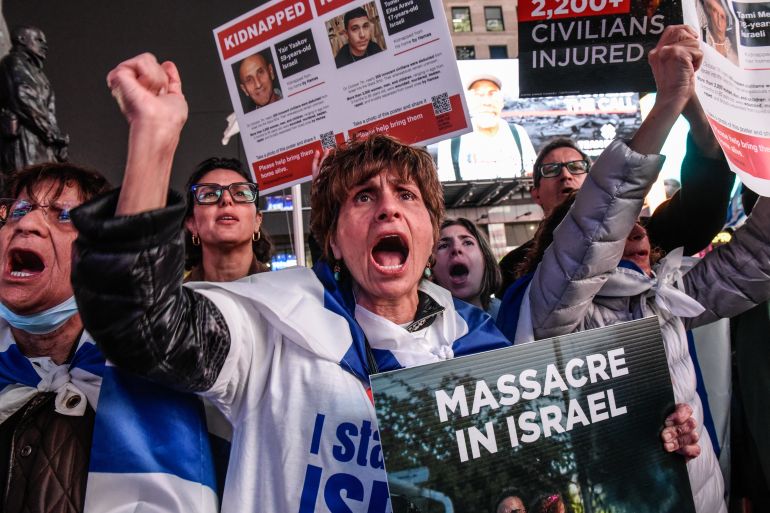 |
| Image Source: Al-Jazeera |
Media experts and Arab journalists have expressed concern over the Western media's coverage of the Israel-Gaza conflict, questioning whether it is biased or unprofessional. Mat Nashed wrote an article in Al-Jazeera. A summary of the article is available here.
He argues that some agencies are "legitimizing Israeli war crimes" in Gaza.
Unsubstantiated Claims:
One issue highlighted by experts and journalists is the publication of unsubstantiated claims.
They claim that Western media sometimes present unverified information, which fails to provide a complete picture of the conflict. The Palestinians are portrayed as mere pawns in the hands of Hamas, and experts say this is an unprofessional mistake.
The One-Sided Narrative:
The article points out that Western media often tell only one side of the story. For example, on October 7, Hamas launched an unprecedented attack on Israel, but it also reported that Israel responded with sustained bombardment of Gaza.
Experts argue that the historical context of Palestinian suffering over the past 75 years is often omitted.
The Human Toll:
The human toll in Gaza is an important aspect of the conflict, but Western media networks are accused of either giving Palestinian death tolls or echoing US and Israeli narratives.
Israel's "right to defend" itself and Hamas allegedly using civilians as "human shields" are frequently emphasized, while the broader context is missing.
Double Standards:
There are claims of double standards in Western media coverage, particularly in how Muslims and Arabs are portrayed.
The article suggests that these communities are sometimes dehumanized, similar to what was witnessed post-9/11, with Arab and Muslim individuals being labeled as "terrorists."
Manufacturing Support:
The experts interviewed for the article argue that Western media may inadvertently contribute to manufacturing public support for Israel's military actions through unsubstantiated claims.
One example cited is the claim that Hamas "beheaded 40 babies," which was reported by multiple Western news agencies.
Fear and Intimidation:
Some Western journalists may want to report in more detail, but fear the consequences. The article mentions cases where journalists were instructed not to attend protests or show sympathy for the Palestinians. Journalists have also been fired for comments or actions expressing sympathy for the victims of Gaza.
BBC Controversy:
The BBC is mentioned in the article as facing objections from its staff regarding the framing of the Gaza conflict.
There are allegations that the broadcaster's descriptions of Hamas's actions differ from its portrayal of Israel's bombardment of Gaza.
Loss of Credibility:
The article concludes by suggesting that this climate of intimidation against journalists and the failure of mainstream outlets to humanize Palestinians are eroding the credibility of Western media coverage, particularly among the Arabic-speaking world and the Arab diaspora in the West.
Expanding on the Context:
To provide a more comprehensive understanding of the issue, it's essential to delve into the historical context of the Israel-Gaza conflict.
This context includes the events leading up to the conflict, the broader geopolitical implications, and the impact on the lives of Palestinians and Israelis.
Geopolitical Implications:
The Israel-Gaza conflict is not isolated but part of a complex geopolitical landscape. Western media coverage often falls short in explaining the broader regional and international dimensions of the conflict.
This lack of context can contribute to a skewed understanding of the situation.
Human Stories:
While focusing on the geopolitical and media aspects, it's crucial to remember that behind every headline and statistic are human stories.
Palestinians and Israelis living in conflict zones face daily challenges, and their stories need to be told to truly capture the human impact of the situation.
Media Responsibility:
Media experts have called for increased responsibility on the part of Western media organizations. They argue that media outlets have a moral duty to provide accurate, unbiased, and comprehensive coverage, ensuring that both sides of the conflict are presented fairly.
The Role of Social Media:
In today's digital age, social media platforms play an important role in shaping public perception.
It is worth examining how social media influences the narrative and what role platforms such as Twitter, Facebook and Instagram play in dispelling misinformation and promoting balanced reporting.
Challenges of Reporting:
Reporting from conflict zones, including Gaza, presents unique challenges. Journalists often face threats and restrictions that affect their ability to provide accurate coverage.
Understanding these challenges can shed light on the difficulties journalists face.
A Call for Change:
The article concludes by emphasizing a shift in the Western media's approach to the Israel-Gaza conflict. It suggests that media outlets should prioritize factual reporting, provide historical context, and offer a platform for diverse perspectives to ensure more inclusive and fair coverage.
By expanding on these aspects, the article now offers a more detailed and comprehensive exploration of the issue while maintaining the original structure and headings.
(Courtesy: Al-Jazeera)
Post a Comment
0Comments